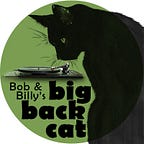You think you have close friends, but you don’t, because if you did…
you would tell them how much you make. Right? But you don’t, do you? None of us do. You might tell a friend the most embarrassing thing you’ve done or your greatest failure. They might confess to an indiscretion or a moral weakness. You don’t really care if they go through your drawers when they are housesitting (well, maybe). They aren’t afraid to cry to you about their divorce.
But trade salary numbers? No way. We will share our most guarded secrets with those we trust the most, but still, we will honor that unspoken societal no-no of comparing.
And I wonder why that is, because we would all have so much more power if we did. Here are three possibilities:
- Most obvious: Ego. Salaries are like the bowls of porridge in “Goldilocks and the Three Bears.” They have to feel just right. If you found out your friend was making too much (according to your internal assessment system, which is based on what you make), then you will feel low, underappreciated, jealous, destabilized, and, perhaps, wanting more? Or, would that be so bad? I often say to co-workers that if I saw the salaries of everyone where I work, I would leave the next day. And for the reasons I mentioned above. But I would leave from a position of strength — the knowledge that I might find another place that appreciates me more closely to my own monetary self-worth.
- Most Troubling: It wouldn’t be right. And here’s where than unspoken code comes in. There’s this underlying assumption that it would be “wrong,” that it would be a betrayal of an employer, that if we did it, we would be a “sower of discord” (Dante’s term). The mindset that promotes this kind of thinking goes back to the Book of Genesis, to Pandora’s Box and right up to the present day when we have it drilled into us that there are just some things that we don’t do because we follow social norms. But if you are wealthy enough, everybody who wants to can find out what you make — that big contract shows up in the newspaper, along with all of the incentives that come with it OR you are listed among’s the world’s richest people and everyone knows how much you have OR even if you are in the non-profit world, someone can get onto www.guidestar.com and see the salaries of the 5 highest paid employees in the organization. If you make a lot of money, that info is everywhere AND other people in your profession freely use your info as a bargaining tool for their own next contract. In other words, there isn’t a damn thing wrong with public knowledge. Conversely, if you are poor, everyone again likely knows what you make. “Hey, what’s that job pay?” someone will ask you. “Mimimum wage,” you answer, and, boom, it’s out there. Of course, when Fast Food Charlie’s gives you a $.25/hour raise, they will probably tell you to keep it to yourself if you want you keep, and you are back in the trap.
- Most Ridiculous: Ignorance is bliss. Ignorance, my friends, is not bliss. It never was, never has been. It is only ignorance. We are creatures of knowledge. We crave knowledge in our daily lives, now more than ever. With information so accessible to us, we spend our time seeking it out. To avoid intentionally knowing what your pal in the next office is making or what the government is doing does not make you happier or more productive. It only leaves you ignorant.
As always, at the core of this reticence is fear — would I get fired, would I hate my friend, would I realize that I’m being taken advantage of, would I have to do something about it? Fear, fear, fear. Sure, if everybody knew what everybody else made, it would end some friendships and force some reckonings.
Even right now, I can hear a friend of mine telling me that he wouldn’t want to know because it wouldn’t be worth what would happen to his relationship and what would happen inside his own heart. I can hear that in my own head. But, if true, what a weak foundation we build our lives on.
My theory is this: if a group of people who knew each other pretty well put their salaries into a hat and dumped them all out and collectively tried to match the salaries with the people in the room, they would get pretty close. There would be only a relatively few outliers. And those would be where the discussions would come, where the backstories would emerge, where the second-guessing would begin. For at its core, the worth of anything is contextual at best, arbitrary at its worst, so to have a chance to work on that seems like a positive.
Not that I’m posting my salary here at the end. But I might in a different setting.
FOR YOUR PLAYLIST: An up-tempo blues workout with the same title as the Cyndi Lauper song and a similar message, but a fresh take on the topic if you are tired of the other one.
OPTIMAL LISTENING: A summer, outdoor barbecue.
